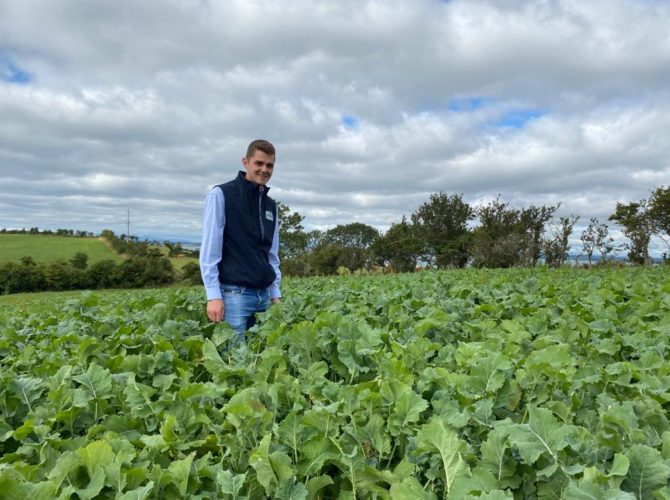Reduce Costs with Forage Crops.
20th July 2022

Sowing a forage crop for winter feeding can produce valuable, low-cost forage whilst also reducing pressure on housing and slurry capacity on farm. Options for summer planting, include brassica crops such as forage rape, hybrid rape or stubble turnips and cereal crops such as rye can also provide fresh forage for the winter.
Now is the ideal time to plan for growing a forage crop which can be sown after grass or direct into cereal stubbles. The earlier the crop is planted the higher the yield which can be achieved. It is said that a day’s growth in July is worth a week in August, which is worth a month in September.
Sowing a brassica crop in a field you plan to reseed or sow spring cereals next year disrupts the life cycle of leatherjackets eliminating the problem in the following crop. The brassica crop may be affected by slugs and caterpillars and should therefore be monitored for signs of these pests.
These crops prefer a pH of 6.5 or above, there is also a high demand for nutrients with 80 units of nitrogen, 20 units phosphorus and 40 units of potash based on index 2 soils. This should be split between the seed bed and plant emergence. A recent soil sample can be used to determine the exact requirements and tailored to the crop being planted.
To get the most from forage brassicas planning is needed to get the crop best suited for your needs and matched to fields best suited to growing and utilisation of feed in situ. At most, 70% dry matter of the animals’ diet should come from the brassica crop, and animals will need access to fibre such as silage or hay to provide the balance. It is best to place bales of silage or straw in the field after planting the crop to avoid damaging the crop and soil during the winter. The fields used to grow the crop should free draining and not too steep to avoid erosion and loss of soil into waterways, with electric fencing used to strip graze the forage and maximise utilisation.
For more information on growing forage crops call into your Fane Valley Store or contact your Agronomy & Forage Specialist or call the office on 028 9261 0485

